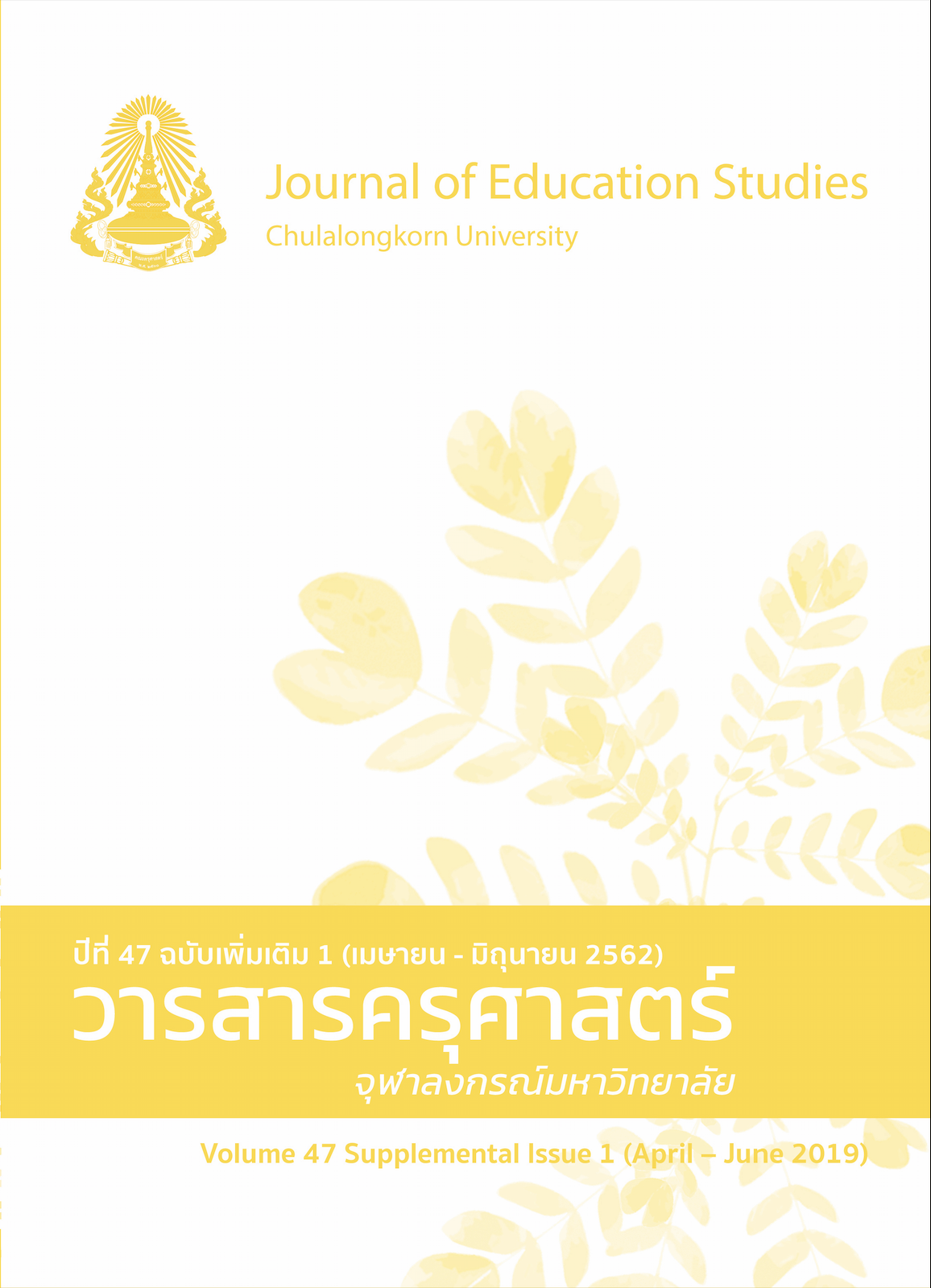การพัฒนารูปแบบการบริหารจัดการเพื่อความเป็นเลิศของสถาบันการอาชีวศึกษา เพื่อรองรับการเป็นประเทศไทย 4.0
คำสำคัญ:
รูปแบบการบริหารจัดการ, ความเป็นเลิศ, สถาบันการอาชีวศึกษา, ประเทศไทย 4.0บทคัดย่อ
การวิจัยนี้มีวัตถุประสงค์เพื่อศึกษาสภาพปัจจุบันและปัญหาในการบริหารจัดการของสถาบันการอาชีวศึกษาในสังกัดของสำนักงานคณะกรรมการการอาชีวศึกษา วิเคราะห์แนวคิดทฤษฎีและการปฏิบัติที่ดีด้านการบริหารจัดการสถาบันการอาชีวศึกษา และพัฒนารูปแบบและการบริหารจัดการเพื่อความเป็นเลิศของสถาบันการอาชีวศึกษาเพื่อรองรับการเป็นประเทศไทย 4.0 กลุ่มตัวอย่างเป็นสถาบันการอาชีวศึกษาในสังกัดคณะกรรมการการอาชีวศึกษา 19 แห่ง ได้แก่ คณะกรรมการสภาสถาบันการอาชีวศึกษา ผู้สำเร็จการศึกษาด้านอาชีวศึกษาในประเทศเยอรมนี ญี่ปุ่น ออสเตรเลีย และสิงคโปร์ กลุ่มผู้บริหาร คณาจารย์และเจ้าหน้าที่สถาบันการอาชีวศึกษา ผู้บริหารสถานประกอบการ รวม 216 คน เครื่องมือวิจัย ได้แก่ แบบสัมภาษณ์ และแบบสอบถาม การวิเคราะห์ข้อมูลใช้การวิเคราะห์หาค่าร้อยละ ค่าเฉลี่ย และการวิเคราะห์เนื้อหา
ผลการวิจัยได้รูปแบบและยุทธศาสตร์ในการบริหารจัดการเพื่อความเป็นเลิศของสถาบันการอาชีวศึกษาเพื่อรองรับการเป็นประเทศไทย 4.0 มี 5 ด้าน ประกอบด้วย 1) การเสริมสร้างประสิทธิภาพและประสิทธิผลในการทำงานเป็นทีมของผู้บริหาร คณาจารย์ และบุคลากร 2) การพัฒนาหลักสูตรการจัดการเรียนการสอน และการประกันคุณภาพการศึกษา 3) การมีส่วนร่วมของทุกภาคส่วนในการบริหารจัดการแผนงานงบประมาณที่มีประสิทธิภาพและธรรมาภิบาล 4) สร้างสรรค์พัฒนาวัตถุประสงค์ พันธกิจ เป้าหมายของการบริหารจัดการสถาบันการอาชีวศึกษาให้สอดคล้องกับบริบทของสังคมและประเทศชาติ และ 5) การสร้างสรรค์นวัตกรรมเทคโนโลยีทางอาชีวศึกษา และเป็นโครงสร้างหลักในการสนับสนุนการเป็นประเทศไทย 4.0




